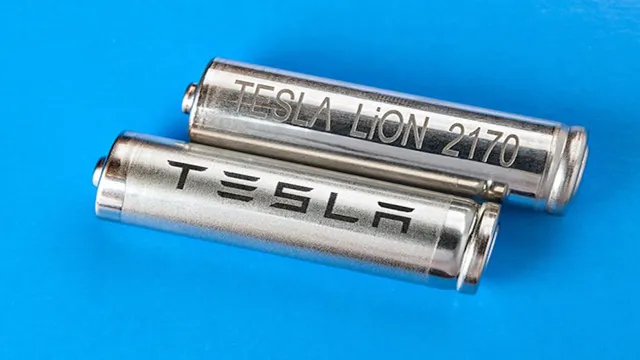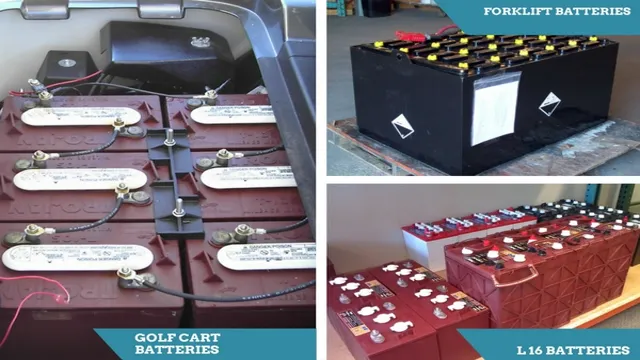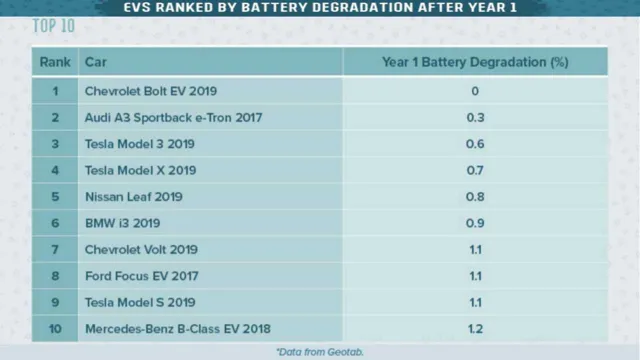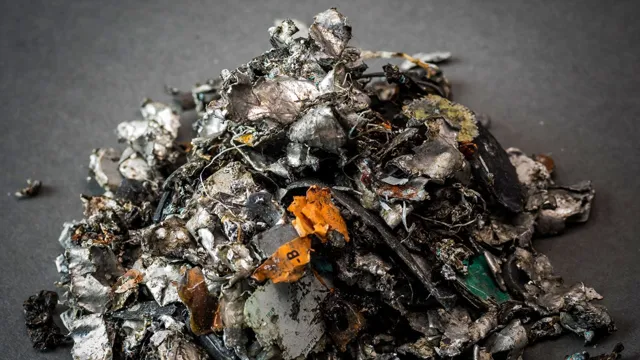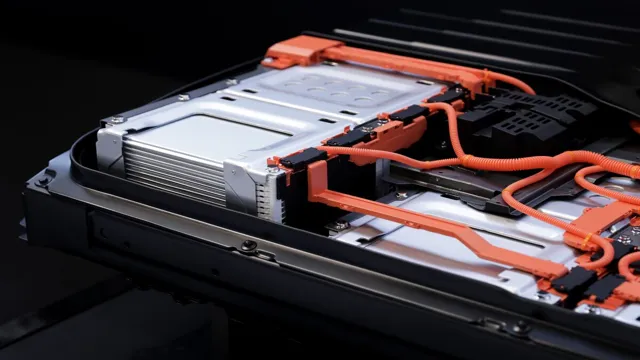Shocking Truth: The Impact of Electric Car Batteries on the Environment
With the ever-increasing demand for eco-friendly and sustainable transportation options, electric cars have become a popular choice among environmentally conscious consumers. One of the most significant components of an electric car is its battery, which stores the electrical energy needed to power the vehicle. However, there are concerns about the environmental impact of electric car batteries, particularly in terms of their production and disposal.
In this blog, we will explore the impact of electric car batteries on the environment and discuss potential solutions to minimize their environmental footprint.
The Problem of Traditional Car Batteries
The traditional car batteries that we’ve been using for years have caused a lot of pollution and harm to the environment. These batteries contain lead, which is incredibly toxic and harmful to both humans and wildlife. When these batteries are disposed of improperly, they can leak lead into the soil and water sources, which can cause a lot of damage to the environment.
But it’s not just the disposal that’s a problem, the production of these batteries also has a significant impact on the environment. The manufacturing process of these batteries emits a lot of greenhouse gases, which contribute to climate change and further harm the environment. It’s clear that we need to move away from traditional car batteries and switch to electric car batteries, which do not contain lead and have a much smaller impact on the environment.
By making this switch, we can reduce our carbon footprint and help protect the planet for future generations to come.
Toxic Chemicals in Lead-Acid Batteries
Traditional car batteries are a common sight on roads all over the world. However, the lead-acid batteries that have powered cars for decades come with a significant downside – they contain harmful toxic chemicals. Lead and sulfuric acid are the main constituents of these batteries, and if they are not disposed of properly, they can cause serious harm to the environment and human health.
The problem of toxic chemicals in lead-acid batteries is compounded by the fact that the vast majority of them end up in landfills or incinerators where they release dangerous amounts of lead and acid into the atmosphere. As a conscious and responsible citizen, it’s essential to opt for sustainable and eco-friendly solutions that are free from toxic chemicals, like Lithium-ion batteries, that offer comparable performance to traditional car batteries without harming the environment.
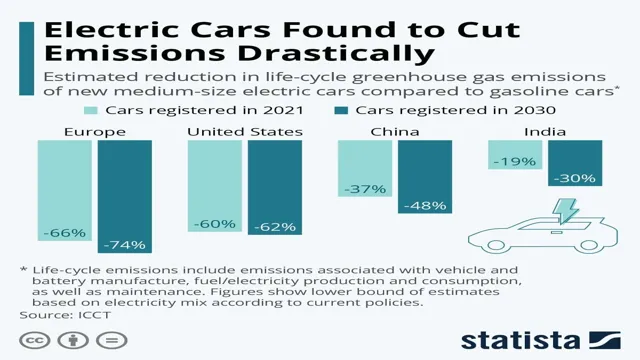
Disposal Issues for Lead-Acid Batteries
Lead-Acid Batteries The problem with traditional car batteries is that they contain lead, which is extremely harmful to the environment if not disposed of properly. Unfortunately, many people are not aware of how to properly dispose of their old car batteries, which can lead to serious environmental concerns. When lead-acid batteries are not disposed of properly, the lead and sulfuric acid inside of them can leach into the ground and waterways, causing pollution and potentially harming wildlife.
This is why it is so important to dispose of old car batteries at a recycling center or designated drop-off location. By doing so, the lead and other toxic materials can be safely extracted and reused in new batteries or other products, ultimately reducing the environmental impact and preserving our planet for generations to come.
The Benefits of Electric Car Batteries
The ever-increasing popularity of electric cars is primarily due to their potential to reduce the carbon footprint. Electric car batteries have a significant impact on the environment, as they do not produce any direct greenhouse gas emissions while being driven. This means that electric car batteries can help in reducing air pollution, which is a significant contributor to global warming.
The batteries in electric cars also tend to have longer lifespans than traditional gasoline-powered vehicles, reducing the need for frequent replacements. Furthermore, the increasing demand for electric car batteries has led to significant advancements in battery technology, making them more efficient and cost-effective. As a result, electric car batteries are now cheaper to produce, making electric vehicles more accessible to everyone.
In conclusion, the benefits of electric car batteries are numerous and powerful, and their impact on the environment is one of the most significant.
Reducing Greenhouse Gas Emissions
Electric car batteries are proving to be a valuable asset in reducing greenhouse gas emissions. The shift towards electric vehicles has been gaining momentum due to the numerous benefits they offer. One of the most significant advantages of electric car batteries is their ability to provide clean energy and reduce air pollution.
Unlike traditional gasoline-powered vehicles, electric cars do not emit harmful pollutants into the atmosphere. This makes them a more environmentally friendly option and helps to improve air quality in urban areas. Additionally, electric cars are more energy-efficient, which means they use less energy to travel the same distance as a gasoline-powered car.
This helps to reduce our dependence on fossil fuels, which are a major contributor to greenhouse gas emissions. By choosing electric cars and their batteries, we can help to reduce our carbon footprint and protect the environment for future generations.
Less Hazardous Materials
Electric car batteries have numerous benefits, one of which is their use of less hazardous materials compared to traditional car batteries. This is because electric car batteries are typically made of lithium-ion. These materials are considered less harmful to the environment than lead-acid or nickel-metal-hydride, which are commonly found in gasoline-powered vehicles.
Lithium-ion batteries also have a longer lifespan, which means they require fewer replacements over time, reducing waste. Moreover, the recycling process for lithium-ion batteries is less complicated and less environmentally damaging than the recycling of traditional car batteries. Altogether, these benefits make electric car batteries a more sustainable and eco-friendly option, reducing the carbon footprint of transportation.
Furthermore, with the increasing production of electric cars, it’s not far-fetched to assume that electric car batteries will become even more efficient and eco-friendly in the near future.
High Rate of Recycling
Electric Car Battery Recycling One of the key benefits of electric car batteries is their high rate of recycling. While traditional car batteries are typically recycled at a rate of around 90%, electric car batteries can be recycled at a rate of up to 95%. This is partly due to the fact that electric car batteries are made up of more valuable materials such as lithium, cobalt, and nickel.
Because these materials are in high demand, it’s economically viable for manufacturers to recycle them, which helps to reduce waste and conserve resources. Additionally, recycling electric car batteries can help to reduce the environmental impact of the manufacturing process, as it reduces the need for new materials to be extracted from the earth. Overall, the high rate of recycling for electric car batteries makes them a smart choice for those looking to reduce their carbon footprint and protect the planet.
Additional Advantages of Electric Cars
While electric cars are often touted for their fuel efficiency and green credentials, there are additional benefits to driving one that are often overlooked. For instance, the impact of electric car batteries on the environment is significantly lower than that of traditional cars. This is because a single electric vehicle battery will last for thousands of miles, whereas a gas car battery will need to be replaced multiple times throughout the life of the vehicle.
Additionally, electric cars are much quieter than traditional ones, which can have a positive impact on both urban and rural environments. Finally, electric vehicles are often designed to be more aerodynamic than gas cars, which means that they create less drag on the road and require less energy to move. All of these factors combine to make electric cars a smart choice for anyone looking to reduce their impact on the environment while still enjoying the convenience and freedom of personal transportation.
Lower Noise Pollution
Aside from being environmentally friendly, one of the additional advantages of electric cars is their ability to lower noise pollution. Unlike traditional cars with internal combustion engines, electric cars operate almost silently. This means that there will be less noise on the roads, especially in densely populated areas, making cities more pleasant to live in.
Furthermore, the reduced noise can help promote better mental health for city dwellers, as high levels of noise pollution have been linked to stress, anxiety, and other mental health issues. Imagine enjoying a peaceful Sunday morning without the constant noise of traffic. That can be a reality with electric cars.
By embracing this technology, we can lead quieter lives and enjoy more tranquil urban surroundings. So, don’t just think of electric cars as eco-friendly vehicles, but also as a way to create a better living environment for all.
Less Impact on Natural Resources
One of the additional advantages of electric cars is their less impact on natural resources compared to traditional gasoline-powered ones. Electric cars don’t emit any pollutants, making them eco-friendly and doing the environment a huge favor. Additionally, electric cars have regenerative braking systems, meaning that energy is reused and less energy is wasted.
Furthermore, since electric cars don’t require fuel, there’s no need to drill for oil or transport it, which reduces the carbon footprint of the car significantly. All these perks combined make electric cars the perfect alternative for those who are environmentally conscious.
Conclusion: A Brighter Future with Electric Cars
In conclusion, the impact of electric car batteries on the environment is undeniably positive. From reducing greenhouse gas emissions to promoting renewable energy, electric vehicles are ushering in a new era of sustainable transportation. However, it is important to note that the production and disposal of these batteries still have an environmental impact, and continued advancements in battery technology and recycling methods are necessary to fully maximize the benefits of electric cars.
So, let’s keep driving towards a brighter and cleaner future, one electrified mile at a time!”
FAQs
How do electric car batteries impact the environment?
Electric car batteries can have a negative impact on the environment due to the materials used in their production and disposal. The production process requires a significant amount of energy and resources, while the disposal of batteries can lead to soil and water contamination if not done properly.
Can electric car batteries be recycled?
Yes, electric car batteries can be recycled and reused. The recycling process can help reduce the environmental impact of batteries by recovering the materials and reducing the need for new resources.
Are there any alternatives to lithium-ion batteries for electric cars?
Yes, there are potential alternatives to lithium-ion batteries, such as solid-state batteries, flow batteries, and sodium-ion batteries. However, these technologies are still in the early stages of development and have not been widely adopted in electric cars.
What is the carbon footprint of electric car batteries compared to conventional car batteries?
The carbon footprint of electric car batteries is generally lower than that of conventional car batteries. This is because electric cars emit less greenhouse gases during their operation, which can offset the emissions generated during the production of the battery. However, this also depends on the energy sources used to power the cars and the manufacturing processes involved.

